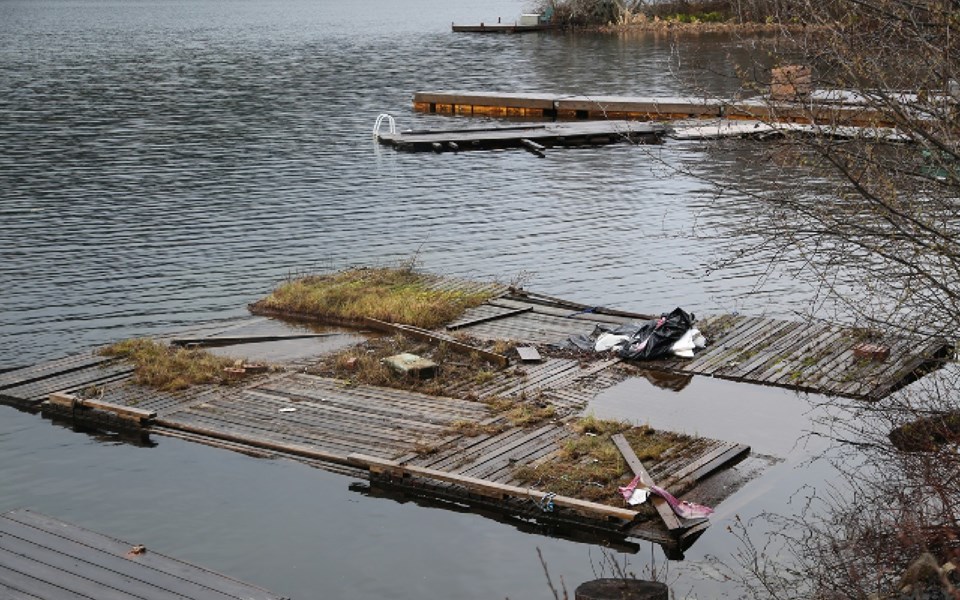With the proliferation of docks and party barges on local lakes, and Alta Lake in particular—and a similar rise in complaints about noise, pollution and safety issues—the Resort Municipality of Whistler (RMOW) is working on a docks management strategy with the provincial government.
The goal is to improve the experience at Whistler's lakes while protecting the environment and keeping people safe—and to remove some of the derelict barges and docks littering the shoreline.
But once municipal staff started to tackle the issue, they quickly found the RMOW has very limited jurisdiction over local lakes, said environmental stewardship manager Heather Beresford in a presentation to council at its May 5 meeting, held over Zoom.
While the provincial government manages all foreshores—where most local docks are located—and the feds have jurisdiction over the water itself, the RMOW's jurisdiction is limited to parkland along lakes, Beresford explained.
Through discussions with the provincial and federal governments, the RMOW discovered that most of the docks in the valley are not currently authorized by the province.
Through an informal aerial survey, the RMOW estimated there are currently 96 unpermitted docks on Alta Lake alone.
While land adjacent to the foreshore may be publicly or privately owned, construction, placement and use of private moorage facilities (docks, boatways, ramps or boat lifts) on Crown land requires authorization through the provincial Land Act.
The RMOW's major concern with docks are those built on municipal parklands—many cobbled together from scrap material and eventually abandoned, some with motors still attached.
RMOW parks staff will place trespass notices on such docks this spring, and will remove them if the owners can't be identified.
The municipality has budgeted $25,000 for barge removal this year, estimating that it will cost about $1,000 per dock to haul them out, dismantle them, recycle where possible and dispose of what's left, said parks and trails supervisor Lorne Russell.
"Some of those docks are multiple sections; they can be up to 40 or 50 feet (15 metres) in length ... and there's some larger amounts on the foreshore as well where there's actually deck space being created on parkland," he said.
"We're very hopeful that we can engage with the owners where we can reach them and that we can work with them to remove them at their expense."
Other "unauthorized" docks will also get trespass notices, and RMOW staff will connect directly with owners to make a plan to remove them.
Waterfront residents who are also upland owners can apply to the province to have their docks authorized; where CN Rail is the upland owner, property owners may need to engage CN Rail directly for approval.
"There is a process that people can go through if they're the upland owner ... We will be helping to give out the information about how people can get their docks legalized," Beresford said.
"That's not our lead; we'll be pointing people in the right direction, but we will be taking some action on our municipal parklands."
The provincial government is also planning a "compliance audit" of Whistler's lakes this summer (with a focus on Alta Lake), which will inform potential next steps for 2021.
RMOW staff is also investigating the potential for placing zoning over the lakes, similar to what's been done in the Okanagan and Shuswap, which would give the municipality more tools to manage docks, barges and more.
Further, the RMOW is also looking at making the switch to allow only electric motors on Alta and Alpha lakes—which requires its own federal application process.
"It's not our decision; we would be talking to the public, sort of taking their temperature on it, and making an application to Transport Canada," Beresford said, adding that there would be a significant public process involved as well.
The RMOW also plans to submit a foreshore application for a new communal dock on the south end of Alta Lake, with an eye to having it installed in 2021.




